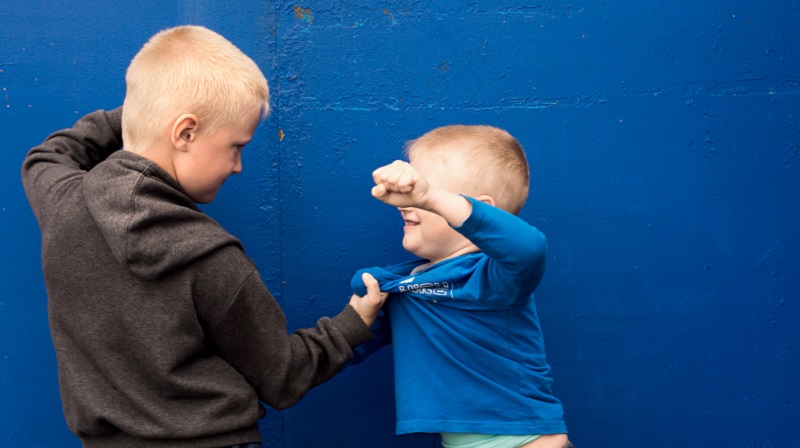Aggressive Behavior in Young Children

Are you worried about aggressive behavior in young children?
Aggressive children frequently show a range of worrisome behaviors. These include difficulty regulating their emotions and their behaviors. They frequently engage in physically and verbally aggressive behaviors, and can show difficulty with anger control. They can be physically and/or verbally abusive, disruptive and destructive of property. They may bully and tease others and be argumentative. Aggressive children may also show behaviors associated with various psychological disorders such as ADHD, Oppositional Defiant Disorder and Conduct Problems.
Aggressive behavior in young children may be triggered by various life stressors or trauma reminders, which threaten the child in some way. When triggered, the child may lose control of his or her behaviors and/or emotions and respond in an out of control, explosive manner. These behaviors can interfere with the child's ability to cope successfully across numerous life domains, such as when they are at home with their families, or at school or when interacting with their peers.
The behaviors aggressive children exhibit play out differently
for each child. The environmental conditions that trigger their aggressive behaviors are unique for each young person, and depend on their specific life circumstances. Aggressive children have difficulty coping with the stressors of everyday life.
Aggressive Behavior in Young Children
Aggressive behavior in young children is a common focus of my practice. These young people are usually male. Males are more likely than females to externalize their psychological distress, and present with acting out, aggressive behaviors. However, young females can also present with aggressive behaviors.
Aggressive children show a range of aggressive behaviors such as anger control problems and bullying behaviors. They can be physically and/or verbally aggressive, and destructive of property. They may tease and manipulate others, and are often argumentative. As a result they show difficulty getting along with others, including their peers and adults. These behaviors can interfere with their academic functioning and their ability to learn at school.
Psychological Testing Can Help
Dr. O'Connor, a Toronto psychologist, provides psychological testing services for young people who are showing aggressive behaviors. The goal of her psychological testing services is to get to "the root of the problem," in this case, the root of the aggressive behaviors the child exhibits, and what is contributing to and/or maintaining them. The assessment is also part of the solution and leads to evidence based interventions to address aggressive behaviors in the young person.
The psychological testing process comprises a rage of assessment measures including standardized norm based tests, informal screening tools,
behavioral rating scales and other psychological testing tools, such as drawings and
play based interviews . What measures or procedures are most appropriate depend on the young person,
and his or her individual needs. Not all of these measures will apply in each case. Some of those that are typically used by Dr. O'Connor
include:
- Gathering Background Information: This
includes information about a young person, such as medical,
developmental and family history. In addition, the
parent provides information about their child’s strengths and
weaknesses, their view of where things are working going well, and
what kind of help they seek.
- Informal/projective
measures such as art/drawing and play therapy, or picture telling techniques often become part of the assessment process.
- Various standardized behavioral/emotional rating scales:
Numerous such measures may be completed by the parent, the teacher,
or other adults, when requested, and often the young person.
- Specific Behavior Rating Scales that are designed to explore a range of social, emotional and behavioral concerns in young people are also employed when appropriate.
- Parenting questionnaires/rating scales to help explore the parent-child relationship when appropriate are also used. School Neuropsychological testing components frequently inform the assessment as well, as do neurocognitive, learning and academic measures.
To read more about aggressive children including signs and symptoms and who is most at risk of developing an aggressive behavior problem , click here.